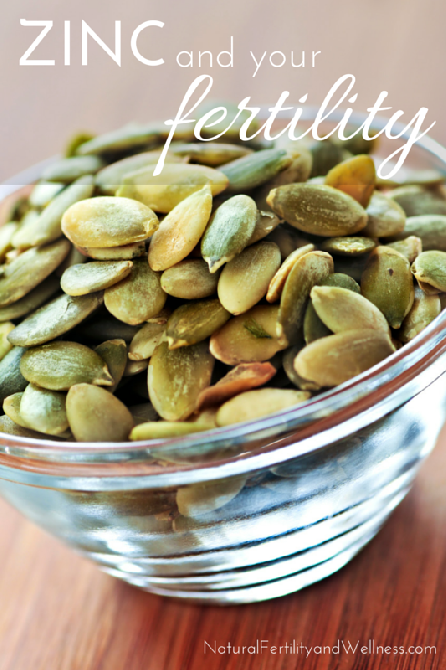
Zinc is actually one of the most studied nutrients when it comes to fertility.
Much of the reason behind that statement most likely stem from the fact that zinc is an essential component of genetic material. This means that a deficiency in zinc can cause chromosomal changes in either partner which in turn causes reduced fertility and greater risk of miscarriage.
WHAT IS ZINC?
Zinc is basically an essential mineral that your body uses in all sorts of ways, and it is needed daily to replenish your body's supply. It's so essential that it's found in every cell of our bodies.
it helps in the production of DNA,
assists in wound healing,
is important for hormone production,
boosts your immune system,
helps in supporting the balance of our blood sugar levels because when we're low or deficient in this mineral, our bodies insulin response slows and our blood sugar becomes harder to stabilize,
it's required in the production of hydrochloric acid in your stomach to digest and break down.
r women, zinc is important in helping your body utilize the reproductive hormones, oestrogen and progesterone. A deficiency can lead to hormone imbalance, abnormal ovarian development, and menstrual irregularity. When your body is low on zinc it also inhibits the metabolism of protein, which in turn can lower egg quality.
For a man, it can greatly impact the sperm count since zinc is found in high concentrations
in the sperm. It is also needed to make the outer layer and the tail of the sperm. If a man is deficient in zinc, it can affect his sperm quality and quantity.
ZINC AND FERTILITY
Despite how essential zinc to our overall health about 12% of the U.S. population is deficient. Stress, soil depletion, over processing of food, and over cooking of zinc containing foods.
Because zinc does not store well in our bodies we must continually consume whole food sources. Some of the best food sources include:
beef, venison, and poultry
eggs from grazing, happy chickens
whole grains
whole fat dairy products, especially raw or farm fresh when available
seeds like sunflower and pumpkin
molasses and maple syrup
The recommended daily allowance is only 11mg for men and 8mg for women, though these amounts may be too low to help boost fertility and may only work well for those who already have an ample supply of zinc. When there is a deficiency or other imbalance in the body, getting more than the RDA is often needed.
For boosting fertility I've seen amounts anywhere from 25 mgs to 50 mgs per day. Although long-term use above 40 mgs has also been shown to cause deficiencies in other minerals (like copper), so if you plan on taking large doses, I'd talk to your doctor or get tested to see if you have a deficiency first.



